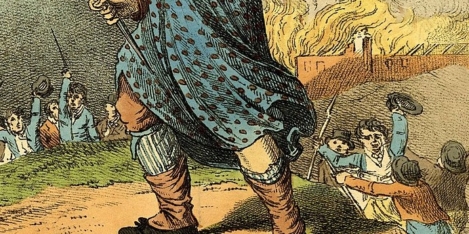To provide the best experiences, we use technologies like cookies to store and/or access device information. Consenting to these technologies will allow us to process data such as browsing behaviour or unique IDs on this site. Not consenting or withdrawing consent, may adversely affect certain features and functions.
The technical storage or access is strictly necessary for the legitimate purpose of enabling the use of a specific service explicitly requested by the subscriber or user, or for the sole purpose of carrying out the transmission of a communication over an electronic communications network.
The technical storage or access is necessary for the legitimate purpose of storing preferences that are not requested by the subscriber or user.
The technical storage or access that is used exclusively for statistical purposes.
The technical storage or access that is used exclusively for anonymous statistical purposes. Without a subpoena, voluntary compliance on the part of your Internet Service Provider, or additional records from a third party, information stored or retrieved for this purpose alone cannot usually be used to identify you.
The technical storage or access is required to create user profiles to send advertising, or to track the user on a website or across several websites for similar marketing purposes.
 Eighteen months since nationwide shutdowns, the global surge in COVID-19 cases is exacerbating the onset of virtual fatigue for many employees according to JLL. The new “How Regenerative Workplaces Can Restore Employee Wellbeing” report explores opportunities for companies to redefine what employee wellbeing looks like and achieve organisational resilience through the physical workplace. More →
Eighteen months since nationwide shutdowns, the global surge in COVID-19 cases is exacerbating the onset of virtual fatigue for many employees according to JLL. The new “How Regenerative Workplaces Can Restore Employee Wellbeing” report explores opportunities for companies to redefine what employee wellbeing looks like and achieve organisational resilience through the physical workplace. More →





 I’m a Luddite. This is not a hesitant confession, but a proud proclamation. I’m also a social scientist who studies how new technologies affect politics, economics and society. For me, Luddism is not a naïve feeling, but a considered position. And once you know what Luddism actually stands for, I’m willing to bet you will be one too — or at least much more sympathetic to the Luddite cause than you think.
I’m a Luddite. This is not a hesitant confession, but a proud proclamation. I’m also a social scientist who studies how new technologies affect politics, economics and society. For me, Luddism is not a naïve feeling, but a considered position. And once you know what Luddism actually stands for, I’m willing to bet you will be one too — or at least much more sympathetic to the Luddite cause than you think. 
 One of the more welcome outcomes from the pandemic has been a reinvigorated and better conversation about the environment in general and workplace sustainability in particular.
One of the more welcome outcomes from the pandemic has been a reinvigorated and better conversation about the environment in general and workplace sustainability in particular. 
 I recently read an interesting little book called
I recently read an interesting little book called 
 Many governments are increasingly approaching artificial intelligence with an almost religious zeal. By 2018 at least
Many governments are increasingly approaching artificial intelligence with an almost religious zeal. By 2018 at least 
 The word ‘languishing’ is being bandied around in the media as the world tries to recover from the pandemic and is experiencing many struggles resuming a semblance of ‘normal life’. Recent articles in
The word ‘languishing’ is being bandied around in the media as the world tries to recover from the pandemic and is experiencing many struggles resuming a semblance of ‘normal life’. Recent articles in 


 A new study conducted by
A new study conducted by 
 New research conducted by
New research conducted by 


 We’re all biased. We all recognise the sharp bump of our critical thinking skills kicking into life when confronted with ideas and information that go against our beliefs. We know how they doze in the comforting embrace of affirming data. So, it’s been entertaining this week to observe the reaction to
We’re all biased. We all recognise the sharp bump of our critical thinking skills kicking into life when confronted with ideas and information that go against our beliefs. We know how they doze in the comforting embrace of affirming data. So, it’s been entertaining this week to observe the reaction to 









September 28, 2021
Developing a future of work strategy depends on asking the right questions
by Mark Caskey • Comment, Flexible working, Workplace design